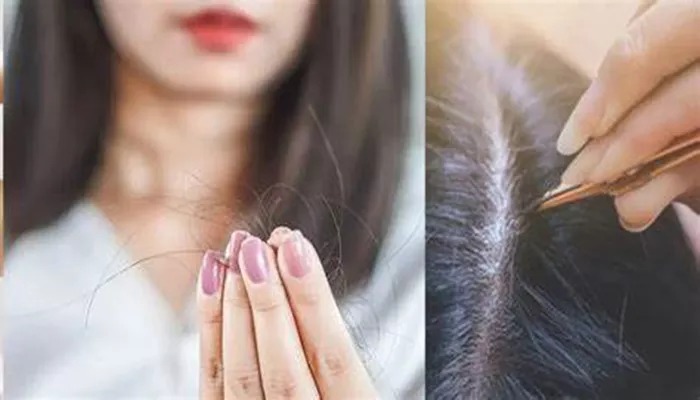Hair fall is a common concern that affects millions of people worldwide. Whether due to stress, poor nutrition, hormonal changes, or underlying health conditions, excessive hair shedding can be distressing. The good news is that there are several immediate steps you can take to reduce hair fall and promote healthier hair growth. In this article, we will explore the root causes of hair loss and provide actionable solutions to help you combat it effectively.
The Root Causes of Hair Fall
Before diving into solutions, it’s essential to understand why hair fall occurs in the first place. Hair loss can stem from multiple factors, including:
- Nutritional Deficiencies: Lack of essential vitamins and minerals like iron, zinc, vitamin D, and biotin can weaken hair follicles.
- Hormonal Imbalances: Conditions like thyroid disorders, polycystic ovary syndrome (PCOS), and menopause can trigger excessive shedding.
- Stress and Anxiety: High stress levels push hair follicles into a resting phase, leading to increased shedding (telogen effluvium).
- Scalp Infections: Fungal infections like dandruff or seborrheic dermatitis can weaken hair roots.
- Harsh Hair Care Practices: Excessive heat styling, chemical treatments, and tight hairstyles contribute to breakage.
- Genetic Factors: Androgenetic alopecia (male or female pattern baldness) is hereditary and requires long-term management.
Identifying the underlying cause is crucial for choosing the right treatment approach.
Immediate Steps to Reduce Hair Fall
If you’re looking for quick ways to minimize hair fall, here are some effective strategies you can implement right away:
Revamp Your Diet for Stronger Hair
What you eat plays a significant role in hair health. To stop hair fall quickly, focus on incorporating these nutrients into your meals:
- Protein: Hair is primarily made of keratin, a type of protein. Include eggs, lean meats, fish, beans, and lentils in your diet.
- Iron: Low iron levels (anemia) are a leading cause of hair loss. Eat spinach, red meat, lentils, and pumpkin seeds.
- Omega-3 Fatty Acids: Found in salmon, walnuts, and flaxseeds, these fats nourish the scalp and reduce inflammation.
- Vitamins A, C, and E: These antioxidants support sebum production and protect hair follicles. Citrus fruits, carrots, and almonds are excellent sources.
- Biotin (Vitamin B7): Found in eggs, nuts, and whole grains, biotin strengthens hair and prevents breakage.
Adopt a Gentle Hair Care Routine
Aggressive brushing, frequent heat styling, and chemical treatments can worsen hair fall. Follow these tips to protect your strands:
- Use a Mild Shampoo: Avoid sulfates and parabens, which strip natural oils. Opt for a gentle, pH-balanced formula.
- Limit Heat Styling: Reduce the use of blow dryers, straighteners, and curling irons. If necessary, apply a heat protectant spray.
- Avoid Tight Hairstyles: Ponytails, braids, and buns that pull on roots can cause traction alopecia. Wear your hair loose whenever possible.
- Be Gentle When Wet: Hair is most fragile when wet. Use a wide-tooth comb instead of a brush to detangle.
Try Natural Remedies to Strengthen Hair
Several home remedies can help reduce hair fall by improving scalp health and strengthening follicles:
- Scalp Massage with Oils: Massaging your scalp with coconut oil, almond oil, or castor oil increases blood circulation and nourishes hair roots. Warm the oil slightly and leave it on for at least 30 minutes before washing.
- Aloe Vera Gel: Applying fresh aloe vera gel to the scalp soothes irritation, reduces dandruff, and promotes hair growth.
- Onion Juice: Rich in sulfur, onion juice boosts collagen production and strengthens hair. Apply it to the scalp for 15-20 minutes before rinsing.
- Green Tea Rinse: The antioxidants in green tea help block DHT (a hormone linked to hair loss). Use cooled green tea as a final rinse after shampooing.
Manage Stress and Improve Sleep
Chronic stress is a major contributor to hair fall. Cortisol, the stress hormone, disrupts the hair growth cycle, leading to excessive shedding. To combat this:
- Practice Relaxation Techniques: Meditation, deep breathing exercises, and yoga can lower stress levels.
- Get Adequate Sleep: Aim for 7-8 hours of quality sleep nightly to allow your body to repair and regenerate.
- Exercise Regularly: Physical activity improves blood circulation, delivering more oxygen and nutrients to hair follicles.
When to Seek Professional Help
While lifestyle changes can significantly reduce hair fall, some cases require medical intervention. Consult a dermatologist if:
- You notice sudden, severe hair loss (clumps falling out).
- Your scalp shows signs of redness, itching, or scaling.
- Hair fall persists despite home treatments.
- You have bald patches or receding hairline (indicating genetic hair loss).
A doctor may recommend treatments like:
- Topical Minoxidil: An FDA-approved solution that stimulates hair growth.
- Oral Medications: Finasteride (for men) or supplements to address deficiencies.
- Platelet-Rich Plasma (PRP) Therapy: A procedure that uses your blood’s growth factors to rejuvenate hair follicles.
- Laser Therapy: Low-level laser devices can improve hair density over time.
Conclusion
Stopping hair fall immediately requires a combination of dietary adjustments, proper hair care, stress management, and, in some cases, medical treatments. While results may not be instant, consistency is key. By addressing the root cause and adopting healthy habits, you can significantly reduce shedding and promote thicker, stronger hair. If hair loss persists, don’t hesitate to seek professional advice for personalized treatment options.
Taking proactive steps today will help you maintain a healthy scalp and luscious locks for years to come.
Related Topics:
- Best Way to Prevent Hair Thinning
- Is Hair Loss from Stress Permanent
- Is It Normal to Lose Hair While Washing


